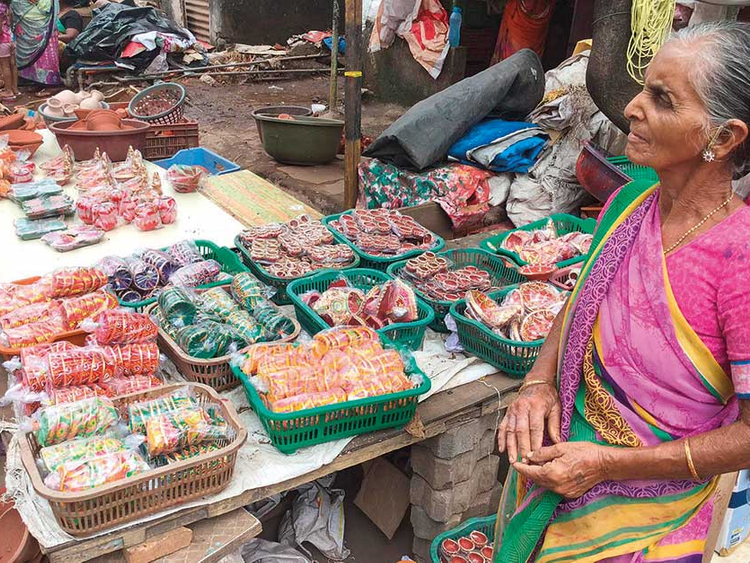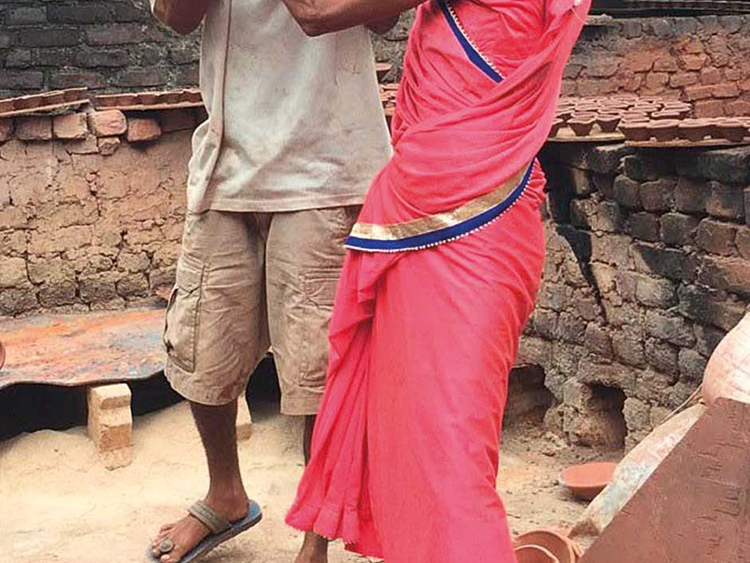Mumbai: With just a few days before Diwali, the skilled potters of Kumbharwada, situated deep in the dense locality of Dharavi, are racing against time and the monsoon to deliver their earthen lamps to the markets so that Mumbai residents can light up their homes for the Hindu festival of lights.
No Diwali is complete without the lighting of ‘diyas’, or small earthen lamps, which have gained even more popularity in recent years.
But the challenges to this ancient profession continue year after year for the community of around 300 families of potters who have hung on to this traditional craft and occupation for over a century, after migrating from Gujarat.
“It is not demonetisation or GST that have caused considerable losses for us this year — but it is the prolonged rainy season that has reduced the production of ‘diyas’ by almost 50 per cent,” Rajesh Chauhan, Secretary, Prajapati Society, Dharavi, that takes care of the business of this community in Dharavi, told Gulf News.
There is no way a wet clay lamp can be placed out to dry in the open, before it goes into the kiln, as the rains come down anytime, he says.
Neither can the lamps be sold on the footpaths of Bombay as there’s hardly any place for hawkers in the wet weather.
Normally, potters make around 500,000 ‘diyas’ every day during the pre-Diwali days but this time there will be a shortfall.”
He also added that the potters, who always faced flak from residents of surrounding areas for the air pollution that caused by their fire-stoked kilns — although there are plans in the next six months to acquire gas kilns that will not release smoke.
That is one point in their favour but the fact remains this job “involves an enormous amount of hard work that brings in inadequate earnings,” says Meena Ramesh Sawaniya, a 38-year-old housewife, also a potter of Kumbharwada (kumbhar means potter and wada colony).
“Right now we have no time to stop to talk, sleep or eat as there is so much work to do before Diwali. Whether it is competition from Chinese string lights or plastic water pots, which affected our business of ‘diyas’ and earthen pots, we have managed to overcome our difficulties year after year,” she said, as she readied to carry a tray of lamps to the kiln.
For the youth who have grown up here and seen their parents struggle, many prefer to seek better pastures outside — for jobs that pay well. Sawaniya’s elder son is a salesman and the younger is studying engineering.
Chauhan, however, maintains that this is an art that no one will give up but admits that nowadays labourers from Uttar Pradesh are being employed to help out the Gujarati families, who live and work in this overcrowded shanty suburb criss-crossed by countless narrow pathways that don’t see sunshine.
The potters occupy nearly eight hectares and have built shanty homes one over the others to create an open space in their midst for their pottery and kiln. Made from clay brought from all parts of India, potters shape up thousands of lamps per day, which are sold either in their natural earth colours or painted in bright hues and embellished with mirrors. What is wonderful about this over 100-year-old settlement in Dharavi is the community spirit. Whilst most Hindus are into making pottery, Muslim families, too, who live in the locality, do a brisk business of selling the ‘diyas’ during festival times. “We all live peacefully here in Dharavi doing our own work,” said a woman clad in a burqa.
While many sell the lamps in the narrow bylanes itself, others spread their colourful wares outside where a cacophony of noise belches out from constant honking and two wheelers, apart from loud human voices — where sales are in full swing.














